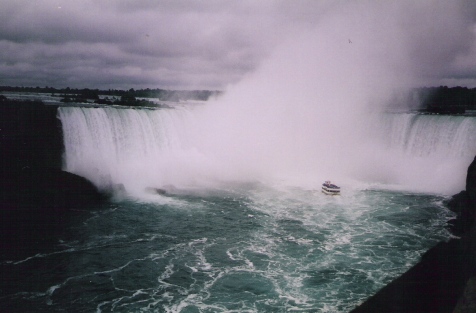Blog Archives
Voting Yes for marriage equality in Ireland.
A few months back, I talked about voting YES in a referendum. Now I’m back doing the same. Different topic, different country, but strangely, I can’t actually vote myself in this one, either.
Even though it’s an Irish referendum, and I’m obviously Irish.
Once you leave the island, you may as well not exist for the Irish government and civil service. They probably want people to leave so they have fewer people to canvas for votes.
I have missed a good many votes since I left home.
Some of them I wish I could have been there for. This is definitely one of them. There have been significant changes to our constitution before. This is no less important. It is more so, in fact. It proposes that we, the Irish, change our constitution to make it possible for anyone to marry anyone else. And to have a family the way they see fit.
It is apparently the first time in history an entire nation has had the opportunity to do this. Other countries with free marriage changed their laws in parliament.
Ireland has a well-written and strong constitution. We the people have a lot of power. Luckily, given the shower of gombeens that usually “leads” us.
This May 22nd, we can show the world that the Irish are indeed, an independent nation. Nearly a hundred years after our attempts to overthrow the heavy jackboot of a foreign invader, we can demonstrate a different type of independence. We are at last free from the shadow of a false morality, the lying claims of a moral superiority that locked up unmarried mothers, that made grandmothers pretend to have infants in their forties, that forced a lot of good people to do a lot of stupid and awful things. One of which was hide their true selves from the world – from their own friends and family.
I had a long facebook discussion with someone who was worried about the effects of this law on children. Not on the direct impact of having a gay parent, but of having to deal with bullies who might make fun of a child with gay parents. The person had witnessed a child in the nineties being made fun of because her parents had split up (yes, Ireland was that closed minded still then: at least some were)
No matter how I explained that this person was actually arguing against their own logic, the fear of children suffering because we haven’t changed the world to perfect yet led her to believe we should wait until the world is perfect before we change it.
I think this person is just not used to the world the way it is now, is afraid of change to the way things always were in Ireland way back then. I’ve since learned that the No campaign have purposefully brought children into the picture to muddy the waters…
I was thinking about old people today, as I cycled along a busy main street. A handful of pensioners were on the side of the road, about five feet from the edge, ready to make a break between cars. I wondered how they could be in such a rush as to endanger themselves. But they probably don’t see it that way. They have always jaywalked, and they’re not going to stop now. It’s why old people are the ones who don’t wear seatbelts – they’re used to the old ways. And they want the old ways to stay, sometimes. No matter how much pain and suffering and often death the old ways caused, and knowing in their heart of hearts that the new way is probably better. It’s why I don’t wear a bike helmet in the city (for the record, bike helmets are like low energy light bulbs: not the best solution to the problem at all – slow the cars down, make them a bit more respectful of cyclists and 90% of all serious accidents would disappear. In most car incidents, having a helmet doesn’t save the cyclists anyway). It’s why I as fast as I always did in my teens though I’m forty-one. But my daughter doesn’t complain about the helmet, nor do I feel quite right in a car unless I have my seatbelt on.
We accept the world we are born into.
That’s why we have to change the world now for our kids to accept the new reality as they grow up. They won’t make fun of the children of gay couples if they see that their parents don’t, or don’t allow it, if they live in a society where gay parents are accepted as just as normal as anyone else’s parents. I touched on this when I was talking about how Clarkson is a relic of an old world we don’t accept anymore.
Such changes can come quickly. Spain has had gay marriage for 8 years. It has only had democracy for 40. When I was born it was still a fascist dictatorship. Ireland has been a republic for 90 years. In some aspects we’re only catching up with the rest of Europe. But we’re finally here now.
We don’t frown on unmarried mothers or make unhappy couples stay together for life, or prevent them finding happiness with someone else. We frown upon counties who still restrict their citizens’ freedoms in ways we no longer do.
When the results of this referendum are out, we will be able to hold our heads high and claim a real moral high ground.
Show the world we’re grown up. Vote Yes.
Post 101: Thoughts on the future
I’ve been pondering the future over the Christmas and New Year, mostly spurred by reading that as we go into a new year we can look forward to seeing some more wildlife in some places in Europe, but others are disappearing. In light of the recent Greek election and the rise of a new political party here in Spain which seems likely to take away power from the current entrenched and corrupt parties, I wonder what the future will look like. Since I just hit 100 posts on the blog, too, I thought today a good day to splatter you with my not-very-logical array of thoughts!
We are a very strange species, us humans: we have the ability to ponder and understand the past and future, which is, as currently demonstrable, pretty uncommon in the animal world. We think about the future and our past so much that we often seem incapable of enjoying, or even appreciating, the present. Yet at the same time, we consider the future only in the context of our current situation, and seem incapable of avoiding the oncoming train of change.
This Christmas, people in Europe looked back at a moment 100 years ago when men showed their common humanity. Right now after the attacks in France, politicians are falling over themselves to declare our unity against a common enemy. Yet we are stuck in the same paradigm – our politicians can’t get past the supposedly separate destinies of each different European country. They’re kicking out emigrants now, if they don’t have a job, sending them back to their home countries despite our purported freedom of travel and working. When they wanted to create the common market, they sold us citizens a stream of shit that we’d all be equal. When I moved from Ireland to Spain I was able to collect unemployment benefit until I found a job a few weeks after arriving. That’s suddenly something they want to stop doing now, though. Imagine New York kicking out Iowans because they lost their job? Ironically, if it were a real union, then there would only be migration for cultural or personal reasons, because policies would be applied across the union and people would have equal opportunity in their own land. The citizens who upped sticks and went to a land with a different language are the ones who invested in this union, and to treat them so badly now shows that it is all a facade.
Looking at the past seems easier than looking forward, or even around us. We follow constitutions people wrote thirty or eighty or two hundred years ago (depending if you’re in Spain, Ireland or the US) without considering their authors wouldn’t have a clue about our modern world – and would have a thing or two to say to us on that score, into the bargain, because I’m sure our world doesn’t conform to their expectations of the future.
Many of us follow the teachings of a man who was alive two thousand years ago – but do we look two thousand years ahead? Or two hundred? Or eighty? Or thirty?
No; we seem locked into the idea that all will be well. 350 years after that man died, everyone presumed that the Roman Empire would continue forever, and all was well, but the dark ages came.
Are we prepared for our dark ages? We know it’s entirely possible, but seem to be incapable of getting out of the way of it – blinking at the light like deer and about to be run over by it.
We would like our lives to be the same in the future (more or less: not all of us live in luxury of course). We like the way we live, we like our houses. After storms we reconstruct. But we have to realize that reconstruction is not going to be an option for too much longer if we don’t change other things. We won’t be driving cars in eighty years unless we stop using all the oil.
Staying somewhat the same will require an effort – and in some cases a change in how we do things.
I always remember my trip to Niagara Falls when I lived in America. I learned that during the day only half the water from the river goes over the falls: the rest is diverted. At night, just a third goes over. Not only does this produce electricity when the water is sent through the turbines rather than over the cliff, but it ensures that Niagara Falls stays in one place – right there, where they’ve built the town around it. If all the water went over the falls, it would erode it back towards the lake, and then the nice viewing platforms and lighting arrangements would have to be moved, too. People want to keep the cascade where it is, and they make sure it stays there.
Yet we want (or at least should) the temperature of the planet to stay the same, so we can remain living in the same places we are accustomed to, where the climate is just right for us. Moving would be a much greater effort than changing the way we do things so we can stay.
Unfortunately, not all of us can probably stay in the same houses because of the change that already faces us. But we have to find them somewhere else to stay, and that might mean allowing them into our areas where we think there are already too man people. Like the European immigration problem, though, the only way to confront the situation is from a stance of equality – and for some that will mean a lowering of our standards of living. If we don’t decide that we must band together to fight towards a common destiny, though, we’re all going to face a much bigger fight.



